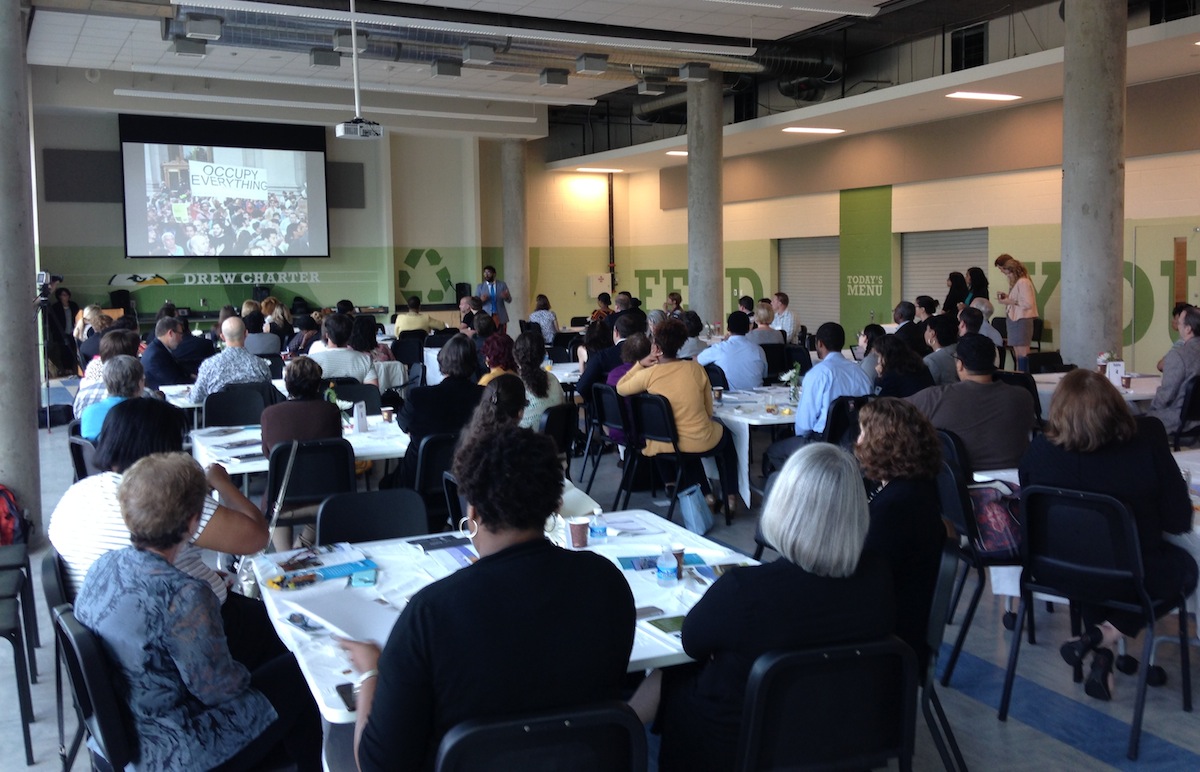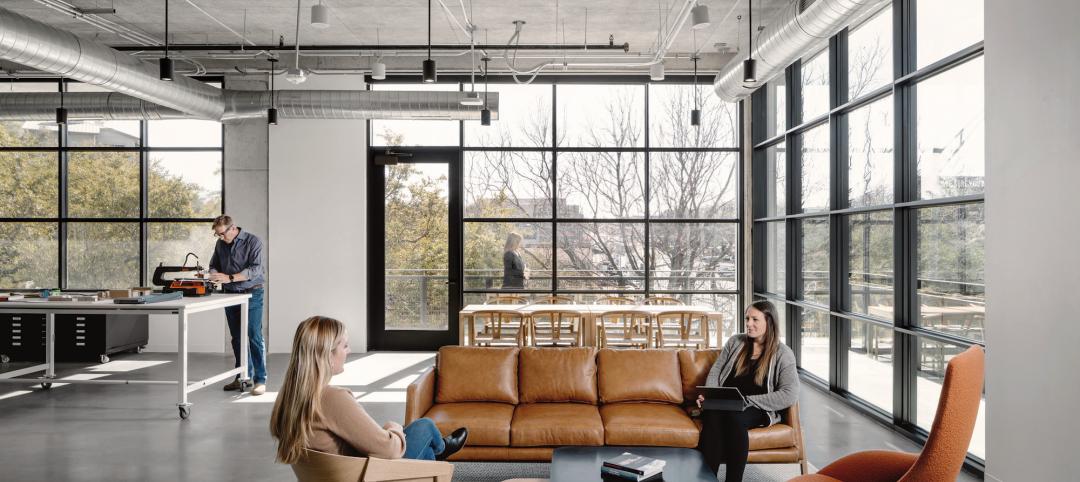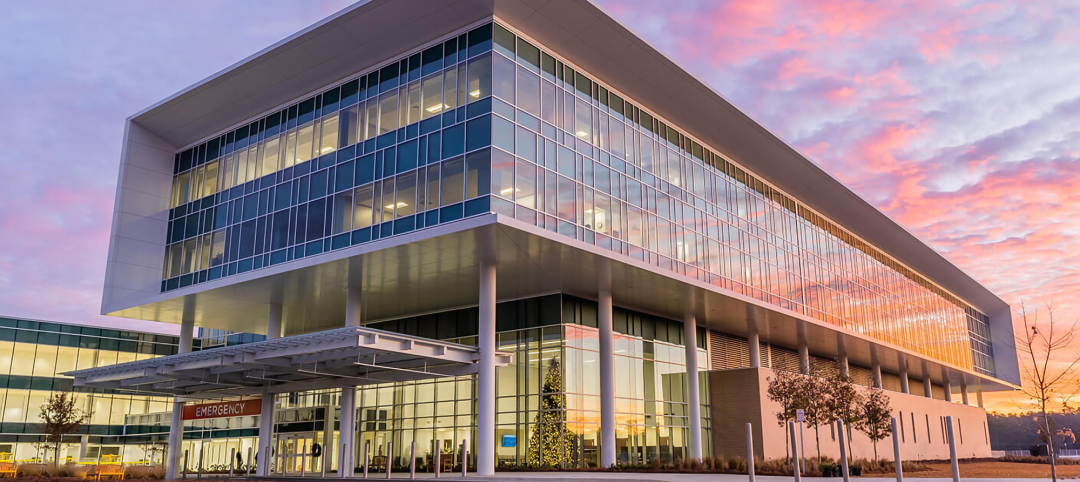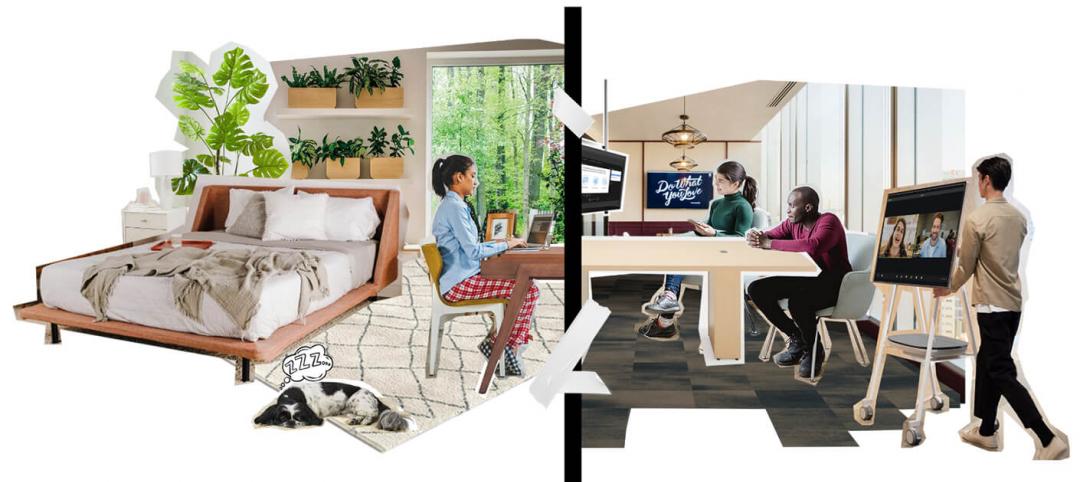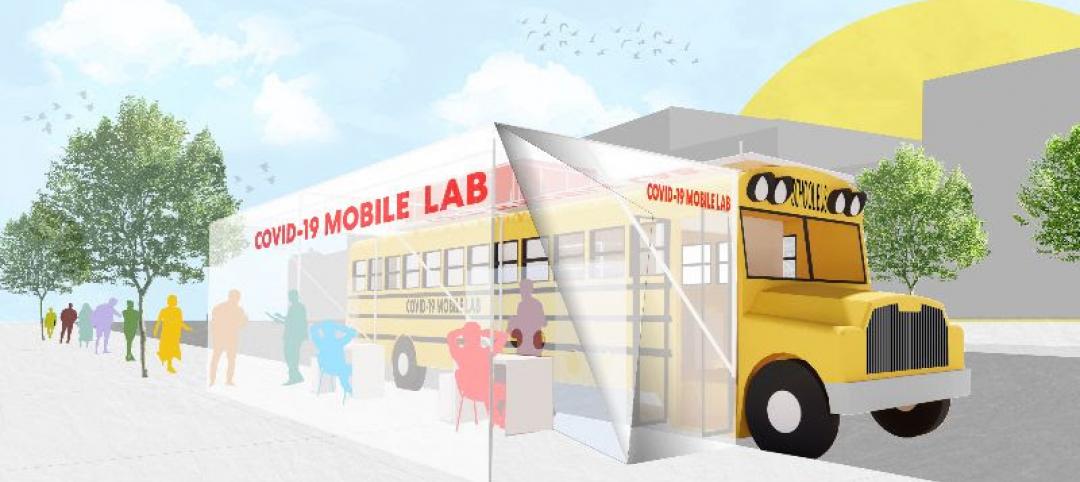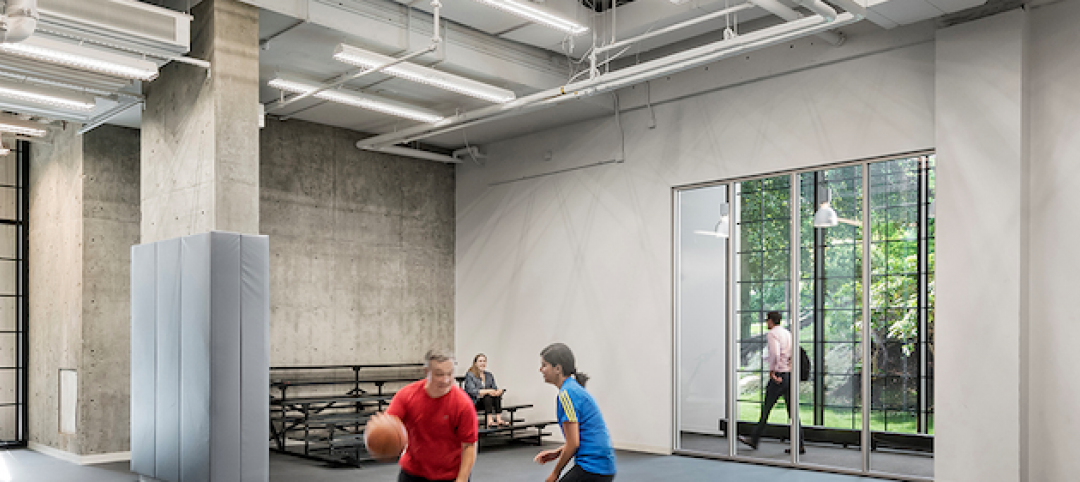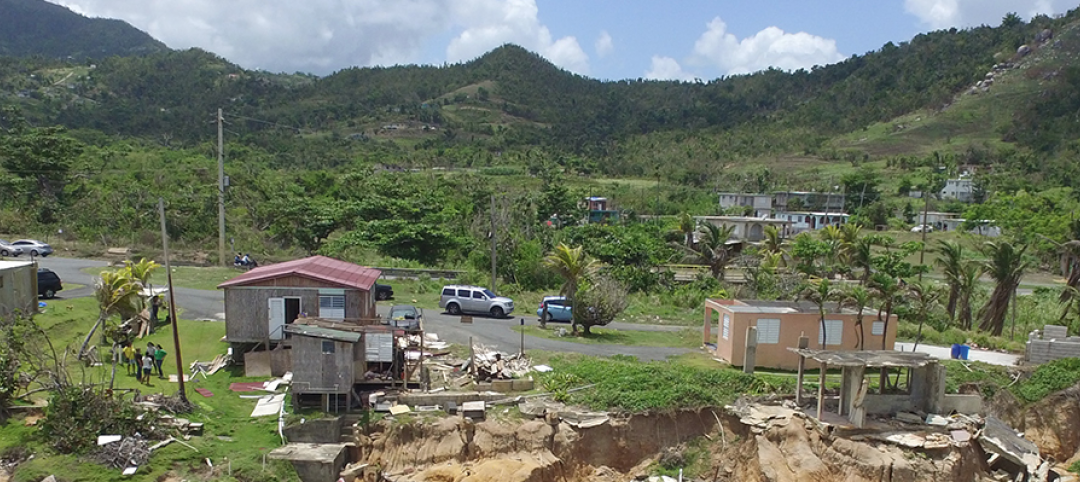There is a growing call for change in our education system. For the past 125 years, we have been operating under an industrial-era design that prepared students for the world of factories, assembly lines and organizational management. But the world has changed. Today, companies need a new kind of worker—one that is entrepreneurial, creative, and possessing critical thinking skills that allows them to function effectively in collaborative teams.
We need to redesign our educational system to bridge the growing gap between education and the working world. STEAM (Science Technology Engineering Arts Mathematics) education can create the disruptive change that we need to transform our educational system, but it will take a collective effort by educators, administrators, policy makers, and communities, including the place-makers at architecture and design firms like Perkins+Will.
Last year, Perkins+Will completed design work for the new Charles R. Drew Charter School, Junior and Senior Academy in the historic East Lake neighborhood of Atlanta. The school provides students a unique project based curriculum emphasizing critical thinking, collaboration, creativity, innovation, and problem solving. The building is outfitted to support this teaching style, including project labs for each grade level that consist of a large, flexible space outfitted with technology, presentation equipment, mobile and reconfigurable furniture, and maximum daylighting. There is a maker lab, too, where students design and fabricate solutions to real-world challenges on 3D printers and other equipment.
As designers, we were enthusiastic about Drew’s approach to student engagement through art and design—going beyond just STEM education to integrate Art alongside the other subjects to create STEAM education. Adding the “A” transforms the industrial-focused pedagogy into one that is imaginative, engaging, and collaborative—allowing students to build self-confidence and learn the critical "soft" skills that today’s employers are seeking. This cradle-to-career philosophy promoted by Drew’s trustees should be a model for all schools to follow, and inspired me and the Perkins+Will’s education practice leaders to develop the concept we call “Design for the Continuum of Learning”—an initiative that connects the design resources of our K-12, Higher Education, and Workplace practices to benefit student success.
From team rooms to learning labs, Perkins+Will designs a variety of academic and workplace environments that support teaching, learning, and collaboration. Our project teams share ideas across the traditional silos of schools, colleges, and workplace to create innovative and forward-thinking environments that inspire student success from cradle to career.
Inspired by this confluence of great work and ideas, we hosted an Atlanta-wide symposium at the Drew Charter School in May 2015 on STEAM education’s impact across the continuum of learning. More than one hundred education leaders attended the May event, including professors of education and innovation from Georgia State University and Georgia Tech, educators and administrators from technical colleges, elementary school teachers, high school engineering design instructors, artists, maker movement leaders, community foundation leaders, corporate training experts and executives, parents, and representatives of the Atlanta media.
“The Continuum of Learning Symposium provided much needed insight and discussion around the emergence of hands-on, problem and project based learning that is poised to help transform education,” said Cobb County, GA Middle School Science Teacher Tanya Deems Hyman. “Perkins+Will’s involvement was such an important gesture on behalf of the business community – to actually help facilitate and take part in the process of improving our education system to best meet future workforce needs.”
Beyond the great feedback, so many viable ideas for new STE(A)M-related business ideas and interventions were generated from our gathering that we decided to extend the entrepreneurial energy through our partnership with Center for Civic Innovation—an organization that incubates social ventures and which helped us facilitate the May symposium. The Education Innovation Network is a joint initiative of our organizations to generate fresh responses to local learning gaps through social entrepreneurship. Social entrepreneurs apply business techniques to build solutions to social problems. Beginning August 18, 2015, the Education Innovation Network will bring together social entrepreneurs, educators and policy makers in a quarterly workshop to explore and grow business solutions to Atlanta’s public education challenges.
The Education Innovation Network will bring together people working on the same public education challenges to support collective problem solving and venture development. With Perkins+Will, CCI’s new Education Innovation Network will include:
- Skill-building workshops to equip participants to tackle the education dilemma through social ventures.
- A private online social network where education entrepreneurs can share articles and opportunities and get feedback and insights from peers
- A monthly email highlighting news, opinions, and opportunities for funding, networking, and learning, tailored to the interests of the Education Innovation Network participants
We hope that creating this network is the first step towards creating the disruptive change needed to foster innovation and make a positive collective impact on our education system.
About the Author: Ken Higa's career has been shaped by exploring and building connections between design, business, higher education, and philanthropy. A Registered Architect with over 20 years of experience, his passion for design began with creating places for learning and has led to a career designing facilities for higher education. Being equally passionate about business, professional practice, and marketing, Higa earned his MBA from Georgia State University and now works with practice leaders to design business strategies and build marketing programs that will help shape the future success of the firm. He is the Co-founder of Atlanta’s Education Innovation Network and is currently the Chair of the Georgia State Panther Athletic Club.
More from Author
Perkins and Will | Sep 19, 2023
Transforming shopping malls into 21st century neighborhoods
As we reimagine the antiquated shopping mall, Marc Asnis, AICP, Associate, Perkins&Will, details four first steps to consider.
Perkins and Will | Jul 20, 2023
The co-worker as the new office amenity
Incentivizing, rather than mandating the return to the office, is the key to bringing back happy employees that want to work from the office. Spaces that are designed and curated for human-centric experiences will attract employees back into the workplace, and in turn, make office buildings thrive once again. Perkins&Will’s Wyatt Frantom offers a macro to micro view of the office market and the impact of employees on the future of work.
Perkins and Will | May 30, 2023
How design supports a more holistic approach to training
For today’s college athletes, training is no longer about cramming team practices and weight lifting sessions in between classes.
Perkins and Will | Dec 20, 2022
4 triage design innovations for shorter wait times
Perkins and Will shares a nurse's insights on triage design, and how to help emergency departments make the most of their resources.
Perkins and Will | Aug 30, 2021
The great re-shuffle & re-think
In this new hybrid environment in which we cater to how our employees work best, how will we manage new hybrid work practices and etiquette?
Perkins and Will | May 18, 2020
Global design firms collaborate on new COVID-19 mobile testing lab to bring testing to vulnerable communities worldwide
Perkins and Will, Schmidt Hammer Lassen Architects, and Arup Group develop scalable solutions for increased testing capacity within high-density and under-served neighborhoods.
Perkins and Will | Jun 7, 2019
Workplace wellness: Top 3 tips for Fitwel certification
How can thoughtful design encourage healthier choices, lifestyles, and work environments?
Perkins and Will | Feb 27, 2019
ResilientSEE: A framework to achieve resilience across scales
Conceived in the Boston studio of Perkins+Will, the ResilientSEE team developed a resilient planning framework that can be applied to other neighborhoods, cities, and countries.
Perkins and Will | Nov 28, 2018
Amazon HQ2 and the new geography of work
The big HQ2 takeaway is how geography and mobility are becoming major workplace drivers.
Perkins and Will | Sep 4, 2018
It takes more than money to fund resilience
Resilient design, much like all projects in the built environment, requires funding.

